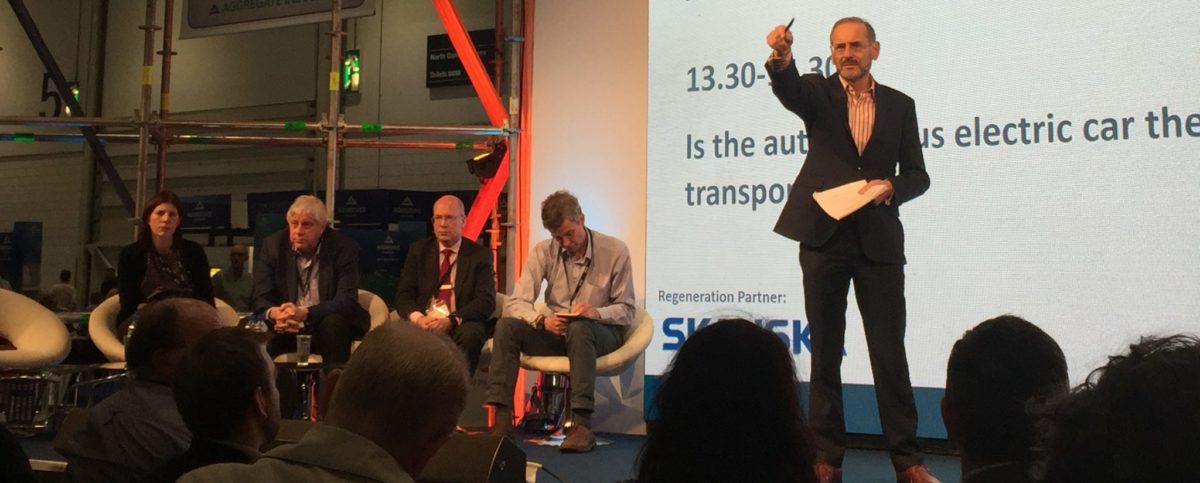Are autonomous electric cars the future of urban transport? This is among the topics discussed on Thursday, Ecobuild’s last day in London.
A panel of experts expressed various ideas on the subject, however a universal agreement seemed to develop, that if the autonomous vehicles revolution materializes, this is going to be an electric vehicles (EVs) revolution too.
Jon Lamonte, chief executive for transport in Manchester, told the event that the forthcoming autonomous cars revolution revolves around three questions: who is driving the car?; what is powering the car?; and how many people are in the car?
The potential answers to these questions depict the size of the opportunity we can seize, suggested Lamonte. Nobody is talking about autonomous vehicles powered by diesel, he added. The consensus is that we think of autonomous vehicles being electric, thus we can reduce our carbon emissions and improve air quality, Lamonte argued.
Similarly, the Manchester county transportation chief told Ecobuild that the goal should be unmanned EVs, which are shared by citizens, thus reducing the number of vehicles in the roads.
Rachel Skinner, of the Institution for Civil Engineers, said that a new transportation system based on autonomous EVs can potentially be safer, cheaper, faster and greener. Entrepreneurs and private companies are going to take the lead in the new business models and can probably make the transition to the new system quicker than the government, Skinner suggested. However, the new system can be ever safer if the private sector cooperates with the government.
Lamonte appeared to agree saying that the national government needs to design a framework for autonomous EVs, where local governments and local transportation companies play a fundamental role too. Opposition will not help, commented Lamonte, because technology progresses regardless of our views and transportation companies can benefit more if they involve themselves in the new transportation system, than been left behind.
Ethical issues
Miles Tight, professor of transport, energy and environment at Birmingham University accepted that autonomous vehicles have a potential for safe and greener journeys, while also increasing the number of people who have access to them.
But he was also critical of some ethical issues behind the usage of autonomous transportation, mainly linked to the interaction of the vehicles with pedestrians. A system of autonomous EVs will need to have a level of aggression in it, said Tight, asking for instance at what speed do we program the vehicles to stop in the roads?
Tight furthermore argued the planning of a new transportation system incorporating autonomous cars is currently very vague. If we like to grasp the benefits of such a new system, Tight said, we need to address the ownership (who owns them?, who can access them and at what price?) and the design of the vehicles (is a universal design better?).
There is no doubt that the debate surrounding the use of autonomous cars and buses in the roads will involve various and often opposing ideas. However, it is also absolutely sure that this new trend is an additional boost to the booming EVs market.
This content is protected by copyright and may not be reused. If you want to cooperate with us and would like to reuse some of our content, please contact: editors@pv-magazine.com.



By submitting this form you agree to pv magazine using your data for the purposes of publishing your comment.
Your personal data will only be disclosed or otherwise transmitted to third parties for the purposes of spam filtering or if this is necessary for technical maintenance of the website. Any other transfer to third parties will not take place unless this is justified on the basis of applicable data protection regulations or if pv magazine is legally obliged to do so.
You may revoke this consent at any time with effect for the future, in which case your personal data will be deleted immediately. Otherwise, your data will be deleted if pv magazine has processed your request or the purpose of data storage is fulfilled.
Further information on data privacy can be found in our Data Protection Policy.